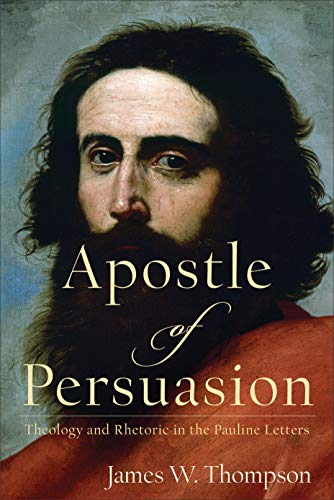Q. Let’s talk Pauline eschatology a bit. One of the things that has constantly bewildered me is the misreading of 1 Thess. 4-5 going all the way back to Schweitzer. What I mean by this is that Paul’s image of the return of Christ, like a thief in the night, clearly implies that the return will be at an unknown time, as for instance Mk. 13.32 says. It could be soon, it could be later, it could be imminent, it might not be. So when we get to 1 Thess. 4-5 since the timing of Christ’s return is unknown, and also unknown is the timing of Paul’s own death, Paul could only say ‘we who are alive, who are left, when Christ returns’. He could not say, ‘we who will surely be dead when Christ returns’ because the timing of both those events is unknown. So it appears likely that Paul reckoned with a possible imminent return of Christ, but also one that could come later. When he got closer to the time in which his own death appeared imminent (see Philippians), then not surprisingly he reckoned more with his passing before the return of Christ. In any case, it is the certainty of Christ’s return, not the timing of it that Paul is sure about. So, I don’t think it works to talk about some sort of significant ‘development’ in Paul’s eschatology from say 1 Thess. to 2 Cor. 5 etc. Nor do I think that what Paul says in 1 Thess. 4-5 somehow rules out his discussing possible preliminary events in 2 Thess. Nor does it make sense to talk about a ‘delay’ in the Parousia idea in these Pauline letters, since the term ‘delay’ implies, there was a date certain, and Jesus didn’t make it then. How does this explanation of the data strike you? I see on p. 117 that you say much the same thing— the sense of possible imminency of the Parousia continues into the later letters like Romans so you can’t trace a loss of eschatology urgency in the Pauline corpus.
Lastly, since the last couple of decades of Galatians commentaries has pointed rather clearly to the idea that the letter is written to south Galatia, and is probably Paul’s first letter written after the first missionary journey and before the Acts 15 counsel when the circumcision of Gentiles issue is decided, the idea that righteousness by faith is a later development after the writing of 1 Thessalonians doesn’t work as a developmental schema in regard to Paul’s soteriology either. Clearly, 1 Thessalonians is written after the second missionary journey, and during a time when Silas and Timothy, not Barnabas and Mark are his traveling associates.
A. I would not build a whole theory of Paul’s eschatology on the statement that “we, who are alive. . .”). Nor would I build one on the reference to departing and being with Christ in Phil. 1. In my opinion. As I indicated in the book, I don’t see a development in Paul’s eschatology, especially in the undisputed letters. Paul speaks of the imminence of the end without giving a date; salvation “is nearer than when we first believed” (Rom. 13:11-12). To watch for the thief in the night suggests an urgency in anticipating the end. The imminence gives an urgency to ethical behavior, as Rom. 13:11-14 and 1 Thess. 5:1-11 indicate. However, as I argued, Paul’s statements are often rhetorical, intended to produce an effect. Thus, we have difficulty bringing disparate statements together to ask about Paul’s eschatology.
The identity of the Galatians is still a conundrum for me, although the issue has not been a major concern. When I first learned about the South Galatian theory, it appeared to be a convenient way for conservative scholars to harmonize Galatians with Acts. Until that time, scholars assumed that the Galatians were really ethnic Galatians. To me, Galatians remains a mystery because we do not where Paul is when he writes, and thus we have difficulty dating the book. Nor are we sure who the Galatians are. As you know, Acts mentions travels through Galatia and Phrygia, but does not mention the establishment of churches. I leave the issue of the identity of the Galatians an open question. Since future eschatology is hardly mentioned in Galatians, you have a point that an early date for Galatians would cast doubt on any development in eschatology.













